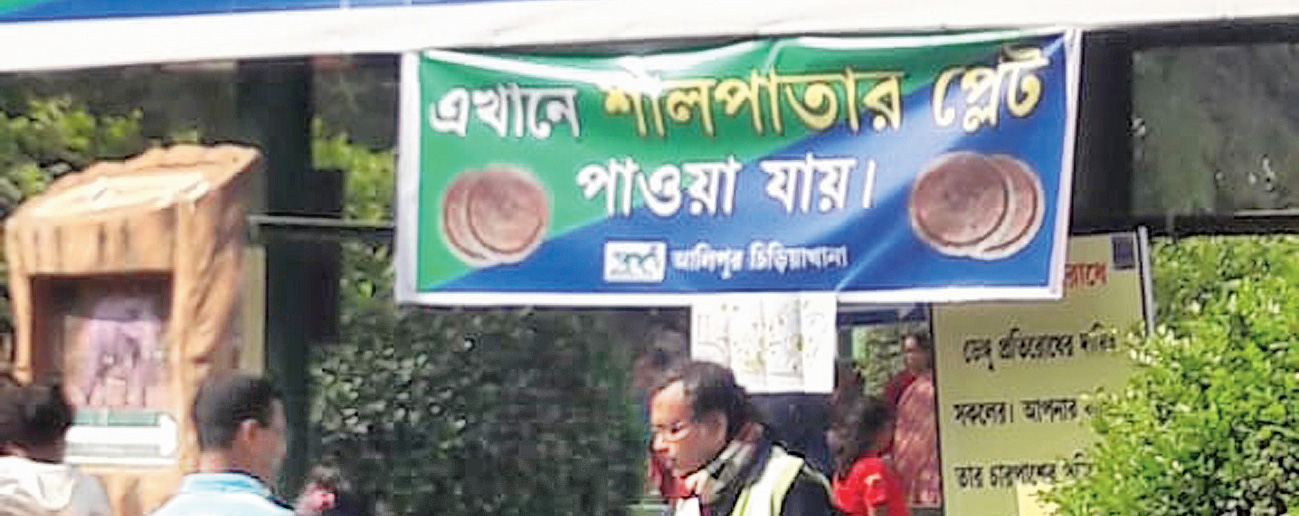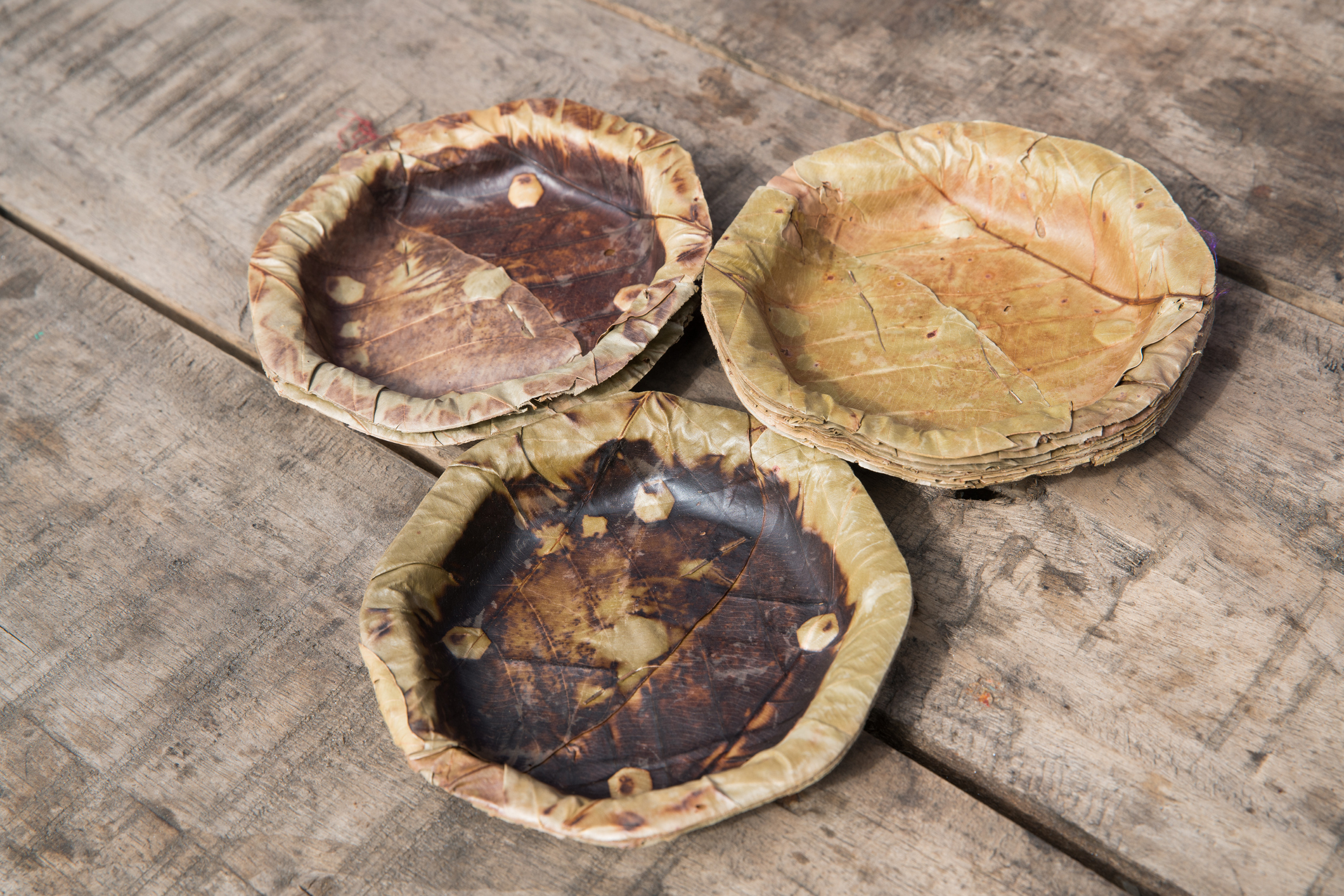Three stalls selling picnic plates made of sal leaves have come up inside Alipore zoo to provide visitors an alternative to thermocol, a material less vilified than plastic but just as harmful to the environment.
The green initiative also serves a social cause. The sal leaves come from a forest in West Midnapore, giving a section of villagers there an additional source of income.
Till sal plates were made available inside the zoo, visitors carrying lunch or snacks would mostly use thermocol to serve food. “The change started on January 1. We have put up several banners and posters, asking visitors to abandon thermocol plates. We have deployed personnel at the gates to check bags. Penalties will be introduced later,” zoo director Asis Kr Samanta said.
Thermocol, a non-biodegradable material, is a brand of the German company BASF and an expanded form of polystyrene. The end point for most thermocol are landfills or the sea. Thermocol takes hundreds of years to decompose. When burned, it releases hazardous chemicals and toxic gases.

One of the three stalls that sell plates made of sal leaves inside Alipore zoo. Telegraph picture
According to a zoo official, the response to the campaign to promote plates made of sal leaves has been good so far. “When stopped at the gates, most passengers do not make a fuss about giving away their thermocol plates,” he said.
The stalls sell the plates at Re 1 a piece. Around 50,000 plates have been sold so far, Samanta said.
When Metro visited the zoo on Tuesday afternoon, groups of visitors picnicking on the grass were mostly using sal plates.
Alok Sarkar, a trader from Lake Town, was among those who had to leave thermocol plates at the gate. “I did not know about the ban. The moment I was told about it, I agreed to switch to sal,” he said.
The sal plates are being brought from a forest protection committee at Chandrakona in West Midnapore, where collecting firewood and sal leaves is the primary occupation of the tribal population. Each plate is made by stitching two leaves together. “Women are the main earning members of several households. Most of the men are alcoholics,” said Safikul Mondal, a member of the committee.
The zoo had been declared a plastic-free zone several years ago. But execution of the ban has been poor. Most visitors carry food inside the zoo, some in plastic packets.










